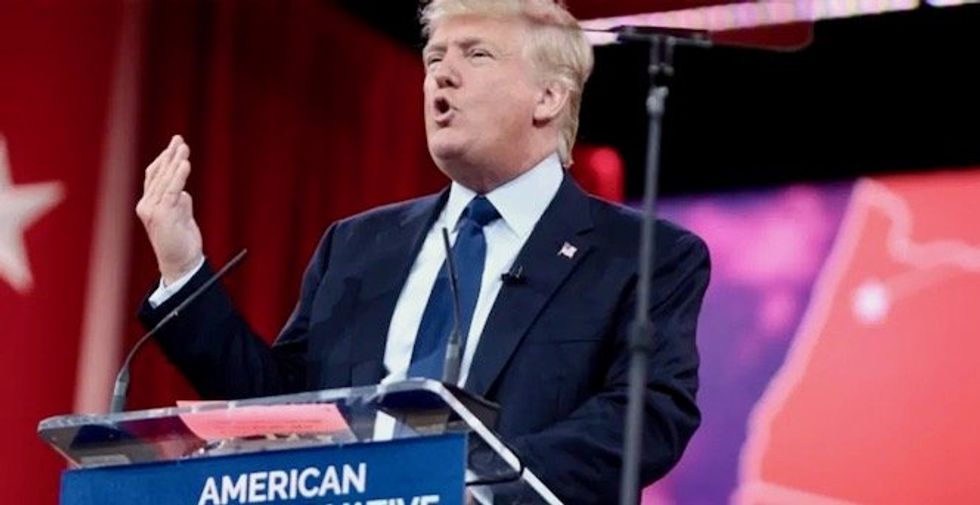

With the stock market once again sinking heavily in the aftermath of President Donald Trump’s ever-shifting trade-war policies, Financial Times chief data reporter John Burn-Murdoch decided to check in on his paper’s Economic Policy Uncertainty Index that offers a snapshot of market instability at a given point in time.
In short, the trade-war chaos being caused by Trump’s policies has caused economic uncertainty to literally go off the chart that the Financial Times has used for the last two decades.
“The thing about veering wildly between policy positions, favouring and then discarding a new maverick advisor each week, and using contradictory justifications at every turn, is that even if one particular pivot is in the direction of sanity, chaos is the constant,” wrote Burn-Murdoch on BlueSky.
ALSO READ: ‘More cuckoos than a Swiss clock factory’: Florida analyst batters state’s politicians
Other observers who looked at the Economic Policy Uncertainty Index were similarly amazed that Trump had caused uncertainty to dramatically exceed even the uncertainty caused by the novel coronavirus pandemic in 2020.
“Trump is so unpredictable that economic uncertainty is off the chart — literally!” wrote Vox reporter Zack Beauchamp.
“We’ve had a different tariff policy almost every week, close to daily as of recent. Even today, the China rate jumped, from 125% to 145%, after the pause was announced,” marveled Tahra Jirari, the director of economic analysis at the Chamber of Progress. “Economic uncertainty has never been stronger. This will make long-term investment decisions near impossible.”
Guy-Philippe Goldstein, a management consultant and cyber warfare analyst, pointed to the chart and remarked that it showed “overall trust in the US as a safe place for investments is already degraded.”
And Adam Butler, the Chief Investment Officer at ReSolve Asset Management, said that the uncertainty being produced by Trump is “the true threat to global economic growth in the intermediate term.”
“How can capital and resource allocators make decisions in the current environment?” he asked. “They won’t. That means frozen hiring, investment, spending, etc.”